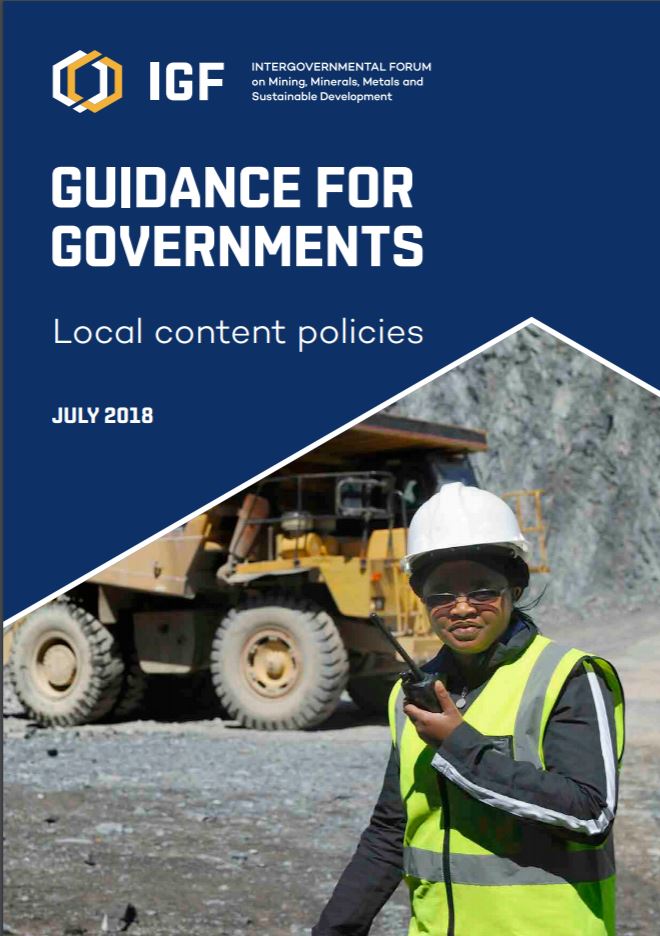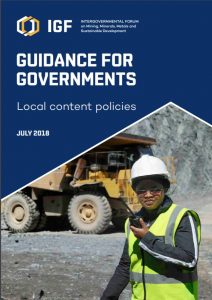SUSTAINABILITY: IGF releases guidance document for local content policies
OTTAWA – A new toolkit from the Intergovernmental Forum on Mining, Minerals, Metals and Sustainable Development (IGF) has published a new document […]


 The IGF Guidance for Governments focuses on local content strategies created by governments, i.e. requiring mining companies to buy local goods and services when operating. It also highlights how countries can move away from commodity dependency and diversify their economic bases.
About 90% of resource rich countries already have some sort of local content requirements. And, without a doubt, there is no “one size fits all” when it comes to drawing on local goods and services.
“However, it remains unclear which local content policies work best, produce results and minimize unintended consequences. Our Guidance for Governments takes these on-the-ground realities into account,” said Greg Radford, director of the IGF. “The success of these local content policies depends on the success of other policies and regulations, such as education, science and innovation, infrastructure and finance.”
The responsibility for these issues is spread across multiple ministries and requires effective co-ordination and coherence, which the IGF Guidance for Governments takes into account by guiding policy-makers towards workable made-in-country solutions.
The document also covers three cross-cutting themes: ensuring goals are achieved in a gender equitable way; exploring the relationship between local content policies and countries’ obligations under trade and investment law; and exploring the implications of technological advances on the success of local content policies.
Every mining executive should brush up on local content guidance by reading the document, available here.
The IGF Guidance for Governments focuses on local content strategies created by governments, i.e. requiring mining companies to buy local goods and services when operating. It also highlights how countries can move away from commodity dependency and diversify their economic bases.
About 90% of resource rich countries already have some sort of local content requirements. And, without a doubt, there is no “one size fits all” when it comes to drawing on local goods and services.
“However, it remains unclear which local content policies work best, produce results and minimize unintended consequences. Our Guidance for Governments takes these on-the-ground realities into account,” said Greg Radford, director of the IGF. “The success of these local content policies depends on the success of other policies and regulations, such as education, science and innovation, infrastructure and finance.”
The responsibility for these issues is spread across multiple ministries and requires effective co-ordination and coherence, which the IGF Guidance for Governments takes into account by guiding policy-makers towards workable made-in-country solutions.
The document also covers three cross-cutting themes: ensuring goals are achieved in a gender equitable way; exploring the relationship between local content policies and countries’ obligations under trade and investment law; and exploring the implications of technological advances on the success of local content policies.
Every mining executive should brush up on local content guidance by reading the document, available here.
Comments